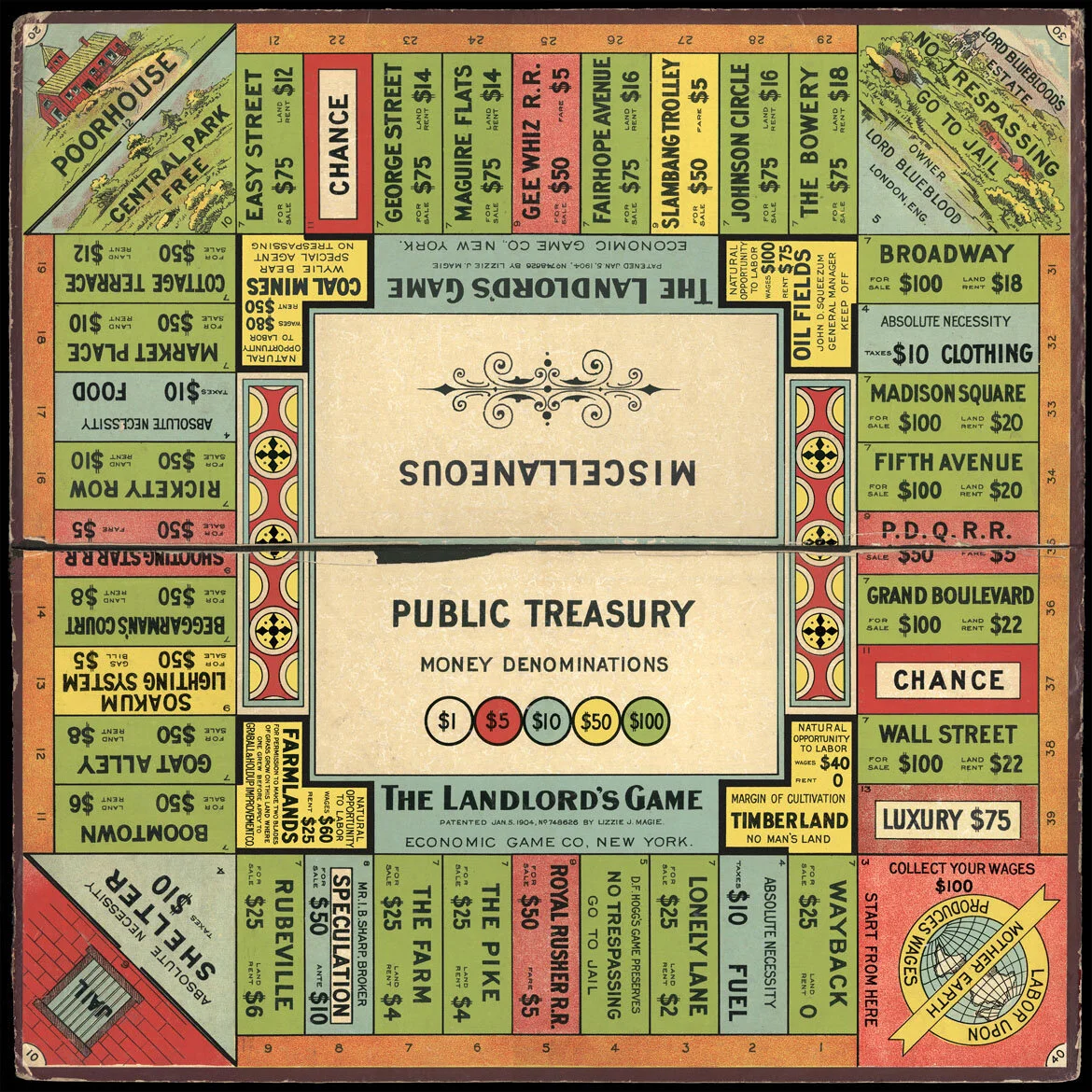Looking Backwards:
A History of Bellamy Bradley Games (1887-2000)
The artist statement in full can be read here.
“Looking Backward: A History of Bellamy Bradley Games” is an exhibit with a metafictional conceit: an exhibition presented by the Bellamy Bradley Games Company of an alternate Earth as part of their 125th anniversary.
It is laid out in a linear manner, laid out as a corporate-communication-as-exhibit that might be sent to trade shows or sit in the lobby of BB Games. It begins with a tablet playing a video –a three-part, ten-minute introduction to the company’s origins. It is punctuated by physical artifacts from the history of Bellamy Bradley Games – Checkered Game of Life, Looking Backward: 2000-1887, and a reproduction of The Landlord’s Game.
Each artifact is surrounded by brief pieces of prose that contextualize the work and relate its significance. The exhibit concludes with a tablet playing a final video – smash-cut, algorithmically edited footage of play and game experiences from ‘our’ reality, over a voice reading the corporate mission statement of Bellamy Bradley Games.
Accompanying the exhibit is a docent ‘from’ this other world, beginning with the spiel: “I’m sure you’re familiar with Bellamy Bradley Games from experiences in your own childhood with our games such as the Landlord Game, Operation Room, Rescue Mission or Systems and Strategies…”
Edward Bellamy
Edward Bellamy / Milton Bradley
On this other earth, author and advocate for social change, Edward Bellamy, follows up on his successful work of utopian science fiction by purchasing a controlling stake in Milton Bradley Games, a method for advancing political argument.
This aspect of the alternate history was represented by an 1890 edition of Bellamy’s Looking Backward, and a series of reproductions of vintage Milton Bradley advertisements from the period in question.
Milton Bradley
The Landlord’s Game
The resulting corporate entity is happy to publish Elizabeth Magie’s The Landlord’s Game, the original version of what, in our universe, became Monopoly. Magie’s game, the progressive original prototype which spawned dozens of imitators, was rooted in the system of Georgist economics: the game was, itself, a critique of the inequities of the land ownership and rent system.
In their universe, game becomes a common household possession, and affects society through the new shared system of cultural metaphors it produces. It also leads to a tradition of games that are innately linked to the discourse of the period, existing as a counter-weight to the dominant ideology of the age, provoking families to have political discussions structured by play and encouraging children to develop a more critical engagement with the issues of the day.
In the exhibit, this aspect of the alternate history was represented by a full model of Magie’s Landlord Game, available for visitors to examine — and, if they chose, to play.
Bellamy Bradley Games
It also leads to a tradition of games that are innately linked to the political and economic issues of the period. Games become a way for social activists to make their argument, and take the place of the newspaper or the pamphlet as one of the central instruments of political organizing in the 20th century.
Instead of reproducing speeches or essays, these games allowed their player to explore political idea by playing simulations of them. Family game night became a forum for families to have political discussions structured by play, encouraging children to develop a more critical engagement with the issues of the day.








